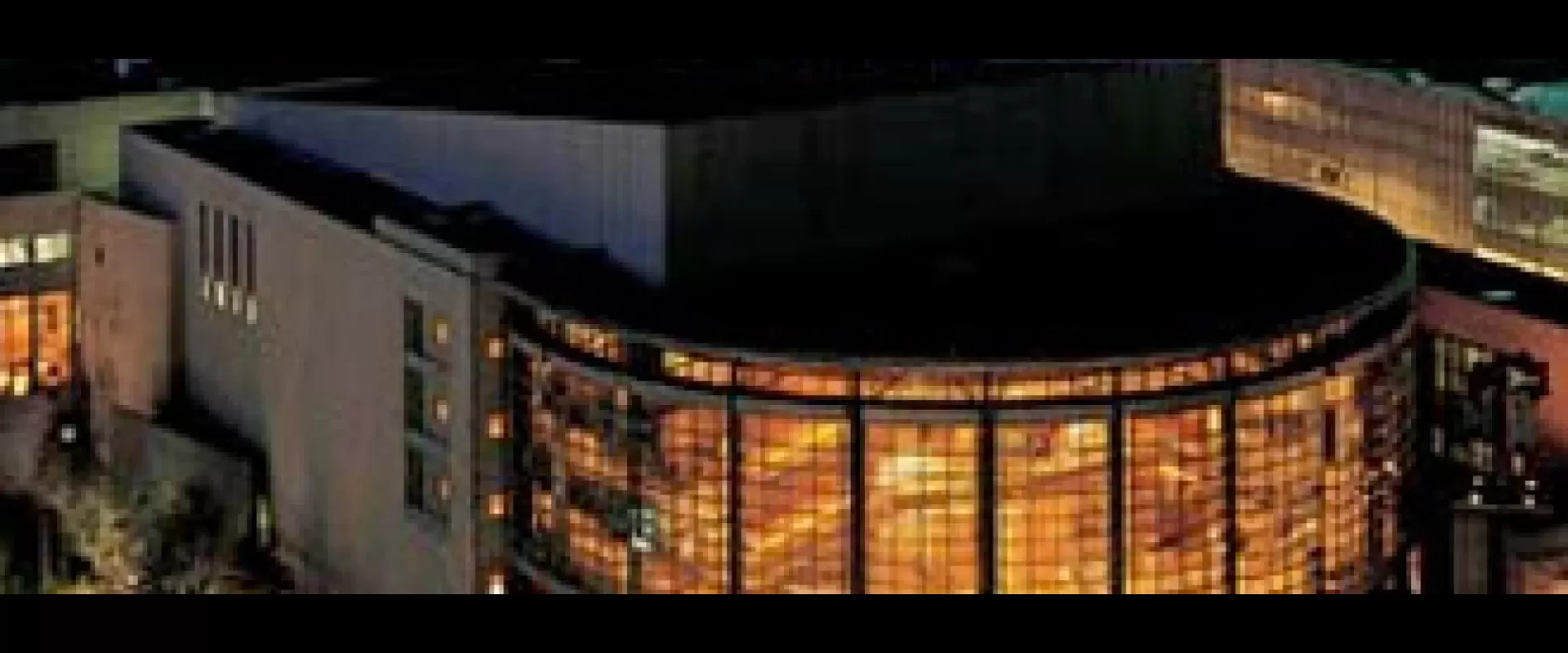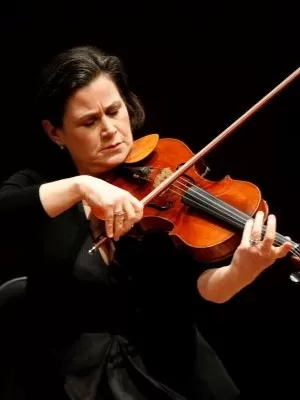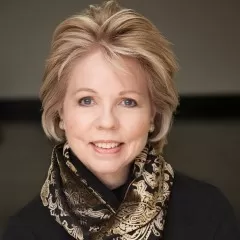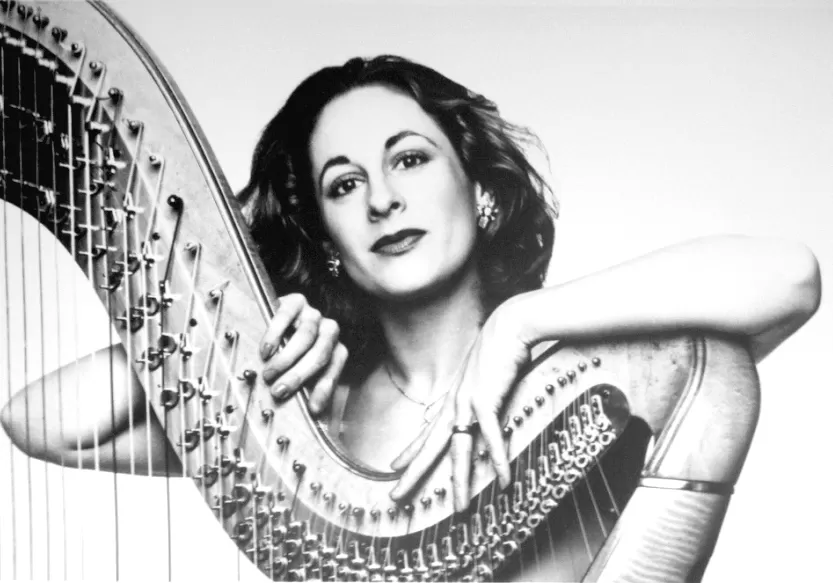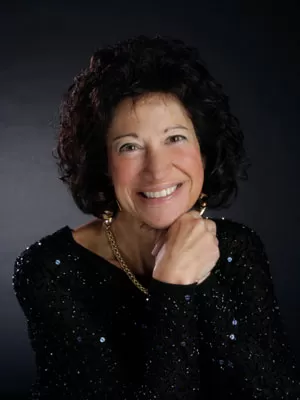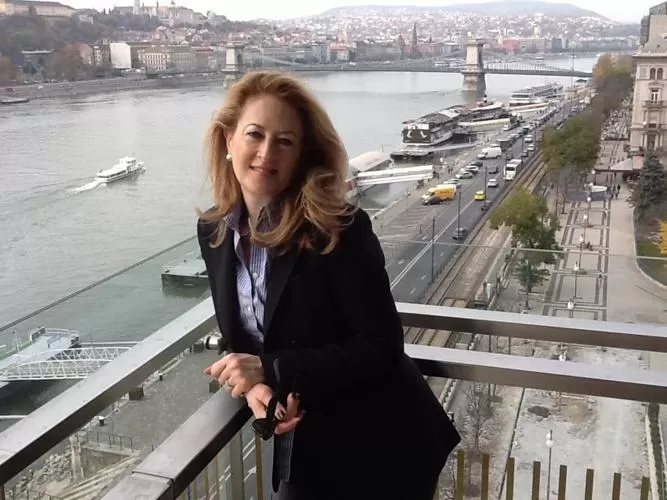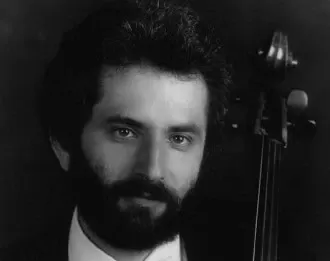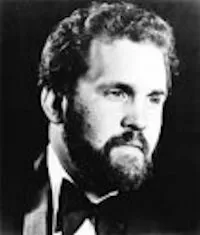Apr 30, 2000 - 7:30 pm
| String Trio, (Terezín, 1944) | Gideon Klein (1919-1945, Fürstengrab) |
|---|---|
| Mikhail Shmidt, violin Susan Gulkis, viola David Tonkonogui, cello |
|
| Piano Trio, Op. 63 (1943) In Memory of Our Lost Children United States Premiere |
Mikhail Gnessin (1883-1957) |
| Mikhail Shmidt, violin David Tonkonogui, cello Mina Miller, piano |
|
| A Vanished World (1999) Commissioned by Music of Remembrance World Premiere |
David Stock (b. 1939) |
| Jody Schwarz, flute Susan Gulkis, viola Heidi Lehwalder, harp |
|
| From Jewish Folk Poetry, Op. 79 (1948) | Dmitri Shostakovich (1906-1975) |
| Elizabeth Hynes, soprano Julie Mirel, mezzo-soprano Stephen Wall, tenor Mina Miller, piano |
|
String Trio (Terezín, 1944) - Gideon Klein (1919-1945, Fürstengrab)
Gideon Klein was born in Moravia in December 1919, and displayed great musical talent from a very early age. He studied composition with Alois Haba and concurrently studied philosophy and musicology at Prague’s Charles University. With the implementation of the Nuremberg Laws after the Nazi annexation of Czechoslovakia, Jewish students were suspended from the universities. Performances and compositions by Jewish artists were also banned, although Klein for a brief period continued to perform as a concert pianist by using a Czech pseudonym.
Incarcerated in Terezín in December 1941, Klein was pivotal in the cultural life of the concentration camp. He was in constant demand as a pianist, arranger, accompanist and repairer of instruments. The later-famous conductor Karel Ancerl was a close friend in Terezín. Ancerl later wrote that, had Klein survived, he could have achieved the highest standard as pianist, composer and conductor.
Gideon Klein was known to his contemporaries only as a brilliant pianist, not as a composer. Many of his Terezín compositions were not heard at the time. They were entrusted to a fellow prisoner who survived and later passed them on to Klein’s sister, Elise. She organized the first concert of her brother’s music in Prague in 1946.
Among those works was the String Trio, his final composition completed just days before his deportation to Auschwitz in October 1944. The first and last movements are full of lively rhythms and melodies redolent of Czech folk dances. The second movement is a set of variations on a folk song that his Moravian nanny used to sing to him. Shortly after his 25th birthday, Gideon Klein was murdered in Fürstengrab in January 1945.
Piano Trio, Op. 63 (1943) - Mikhail Gnessin (1883-1957)
In Memory of Our Lost Children
Mikhail Gnessin was born in Rostov, Russia in 1883, and studied music at the Rostov Technical Institute from the age of 9 until he was 16. He became a pupil of Rimsky-Korsakov and Lyadov at the St. Petersburg Conservatory from 1901 to 1909. The son of a rabbi, he early on became a zealous partisan of Jewish themes in music, becoming the organizer of the Society of Jewish Folk Music in St. Petersburg from 1908-1911. He traveled widely in Western Europe and journeyed to Palestine in 1914 and again in 1921, studying folk tunes and researching ancient Hebrew music.
Gnessin was Professor of Composition in the Conservatories of both Moscow and St. Petersburg, where his student included Khatchaturian and Khrennikov. He also taught at the Gnessin Academy. When the latter was reestablished as the Gnessin State Institute for Musical Education, he became its principal from 1944-1951.
Gnessin’s output covered a wide range – he wrote for the stage, orchestra, piano, chamber music, film, chorale and songs. Over 50 of his compositions have Jewish subjects, including his operas The Maccabbees and The Youth of Abraham. He also wrote incidental music to stage works from Sophocles to Shelley to the Russian playwrights Blok and Gogol.
Igor Stravinsky wrote: “Gnessin was a striking character. He dressed as an Orthodox Hebrew, but at the same time was identified with radically antisectarian political and social views…….”
The Piano Trio Op. 63, dating from 1943, subtitled “In Memory of our Lost Children,” is written in one movement. Gnessin indicated that the andante theme was provided by his young son, which adds poignancy to the choice of subtitle.
A Vanished World (1999) - David Stock (b. 1939)
Commissioned by Music of Remembrance
World premiere: April 30 , 2002, Benaroya Hall, Seattle, WA at Music of Remembrance’s Holocaust Remembrance Day concert.
David Stock offers the following notes:
Over the last decade and a half, I have written several works with explicitly Jewish content, including Yerusha (clarinet and chamber ensemble), A Little Miracle (mezzo-soprano and chamber orchestra), and Third Symphony (Tikkun Olam). Each of these pieces is built from Jewish material-both musical and conceptual, some invented and some quoted. Thus it was a real challenge when Music of Remembrance commissioned me to write a Holocaust-related work. My starting point was the old tune Shalom Aleichem, which is quoted in full in the middle of the piece. This led to other tunes through association; again, some are "real," some invented.
What eventually emerged was a kind of aural snapshot of the pre-war world of East European Jewry, living on the edge of the abyss. The music is frequently interrupted by instrumental screams--perhaps warnings of what is to come?
The title comes from a famous book by Roman Vishniac: a photographic and literary depiction of that same Jewish world, now kept alive only in memory and memento.
The score was completed in August 1999, in Santa Fe, New Mexico, and is dedicated to Mina Miller, founder of this remarkable series. The work was written especially for three wonderful musicians: Jody Schwarz, Susan Gulkis and Heidi Lehwalder.
From Jewish Folk Poetry, Op. 79 (1948) - Dmitri Shostakovich (1906-1975)
Almost a quarter of a century after his death in August 1975, Dmitri Shostakovich remains the subject of heated controversy and seemingly endless fascination. His stature as one of the great composers of the last century is not challenged. His fifteen string quartets are generally regarded as among the greatest in that form since Beethoven. His fifteen symphonies include several masterpieces, and his output in other chamber music, opera, instrumental, vocal and film music is considerable.
The USSR was a country in which anti-Semitism was never far from the surface and was often an instrument of national policy. In the light of Shostakovich’s still-disputed role in that society, it is of interest to examine his relationship to Jews and Jewish culture.
The cycle From Jewish Folk Poetry was by no means his only work with a Jewish theme. As early as 1944 his Piano Trio No. 2 with its intensely Jewish final movement had been banned after its premiere performance. In later years his Symphony No. 13 (1962) was inspired by Yevtushenko’s harrowing poem Babi Yar, depicting that notorious massacre of Jews. His Second Cello Concerto (1966) is full of the melodies and rhythms of Jewish folklore.
Shostakovich was fortunate in being given a singular upbringing by parents who would not countenance anti-Semitism. Throughout his life he scorned anti-Semitism, breaking relationships even with good friends on the issue. One cannot do better than quote Shostakovich’s own words from his memoirs: “Jewish folk music has made a most powerful impression on me. I never tire of delighting in it; it is multifaceted – it can appear to be happy while it is tragic. It’s almost always laughter through tears…. This quality of Jewish folk music is close to my ideas of what music should be….. All folk music is lovely but I can say that Jewish folk music is unique.”
Shostakovich had come upon a volume which contained the texts of Jewish songs, but with no music. He decided to select eleven of the texts and set them to music scored for soprano, alto, tenor and piano. Again in his own words: “I would be able to tell about the fate of the Jewish people. It seemed an important thing to do, because I could see anti-Semitism growing all around me.”
This was in 1948, the year of the "anti-Formalist” attack on Shostakovich and other leading composers. This campaign was accompanied by a concerted effort to minimize or even eradicate Jewish culture, and there was no way that the cycle could be published or performed. The cycle eventually had its premiere in 1955, with the composer at the piano. An orchestral version dates from 1964. Ironically, even with Stalin safely dead, the publication and performance led to further hostility to and vilification of the composer, and the enforced alteration of the title from “Jewish” to “Hebrew.” Appropriately, the last three songs are all imbued with an optimism lacking in the first part of the cycle.
